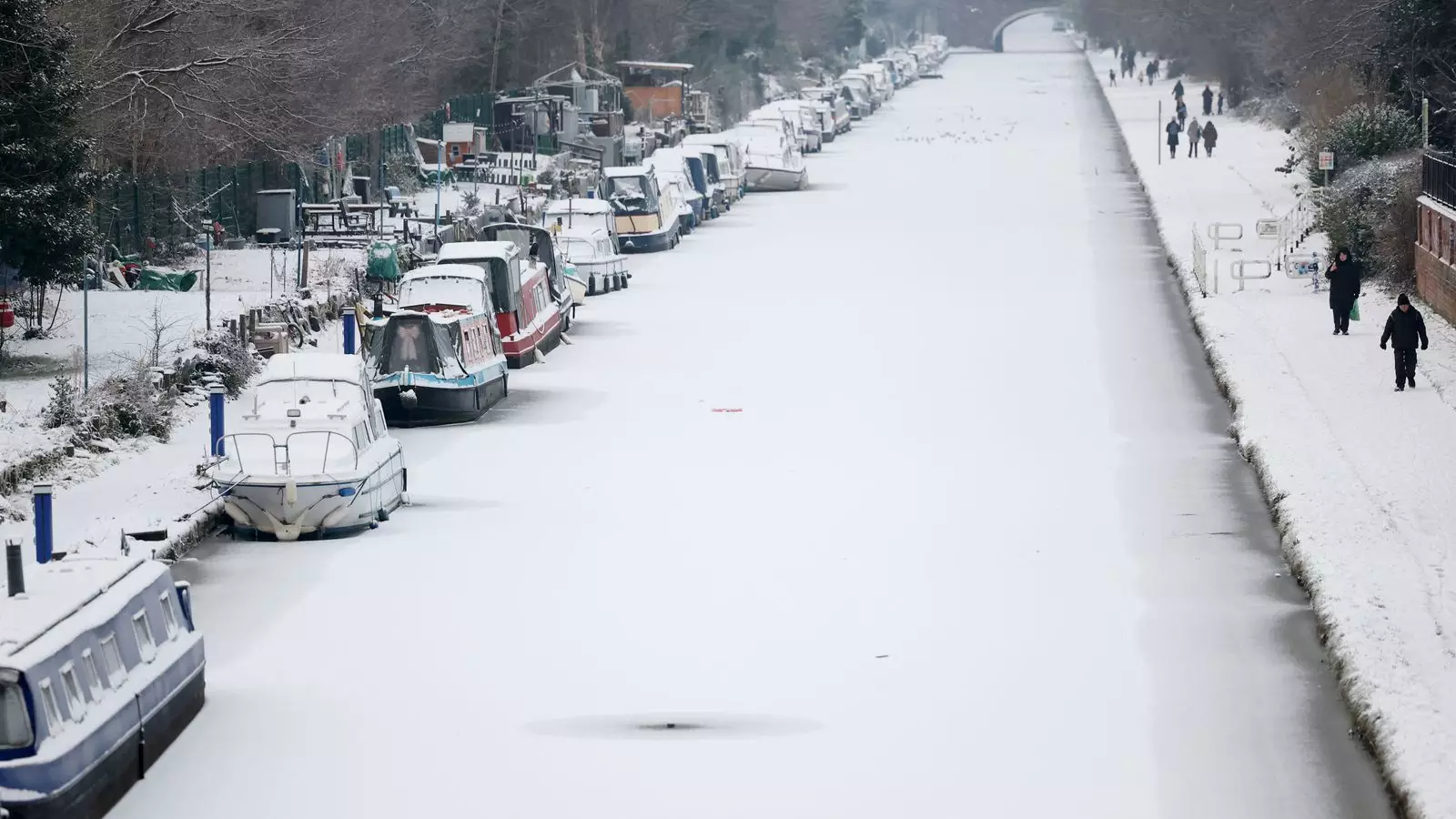The UK is currently grappling with severe weather conditions as the Met Office has issued yellow weather warnings for snow and ice, spanning across multiple regions. These warnings are crucial for citizens to prepare for the potential hazards that come with freezing temperatures and snowfall. Especially notable is the alert that indicates temperatures could plummet to an astonishing -16°C in certain areas, heightening the risks associated with this harsh winter climate.
The situation escalated on Thursday, where a series of yellow warnings were initially established but had limited durations. However, evolving meteorological conditions prompted the Met Office to extend these advisories to cover a broader swathe of the country, comprising the Midlands, North West England, Eastern England, Wales, and Northern Ireland. As residents reel from the biting cold, the chances of injury from slips and falls due to hidden ice become increasingly probable, making this weather forecast a critical focus for many.
The atmosphere of uncertainty inevitably extends to travel disruptions, particularly in aviation and road networks. Manchester Airport, a vital transport hub, experienced significant operational hiccups due to heavy snowfall, leading to runway closures. In response to the situation, airport officials communicated that while runways reopened at 10 am, passengers should brace for delays stemming from the earlier closures.
On the roads, the scenario is no less chaotic. Reports from National Highways detail a serious multi-vehicle collision that resulted in the closure of the A30 in Cornwall. This incident serves as a stark reminder of the dangers icy roads pose. In collaboration with local law enforcement agencies, authorities are emphasizing the importance of staying vigilant and limiting travel during hazardous conditions. Particularly, motorists have been advised to avoid secondary roads that may not be subjected to gritting.
As the snow and ice warnings remain in place, local authorities are activating emergency protocols to assist those affected. The collaborative efforts between police departments and road maintenance teams underscore the community’s commitment to ensuring public safety during these challenging conditions. Snow plows have been deployed, although some have found themselves hindered by stalled traffic caused by minor accidents.
Additionally, the call to action has extended to private sector stakeholders, most notably car insurance companies. The RAC has reported unprecedented request volumes for roadside assistance, noting that demand has hit its highest level since the winter of 2022. This spike is a concerning indicator of the treacherous conditions that have manifested across the country, forcing more people to seek assistance due to accidents or breakdowns.
Looking Ahead
As we anticipate the weather’s trajectory, it is apparent that the potential for further travel disruptions looms large. The Met Office’s predictions underscore that icy conditions are not a fleeting concern, with specific warnings outlined to remain in effect well into Friday morning. Communities are urged to remain proactive, staying updated on the latest forecasts and taking necessary precautions when commuting.
Moreover, travel and transportation services need to remain adaptable, adjusting to weather developments to mitigate the impact of these icy conditions. The road ahead might be fraught with challenges, but the collective effort of local authorities, transport services, and the public can go a long way in ensuring safety and minimizing risks.
The severe winter weather currently affecting the UK presents notable hazards that merit serious attention and action. Knowing how to navigate these dangers effectively is essential for the safety and well-being of all citizens during this challenging time.

Leave a Reply